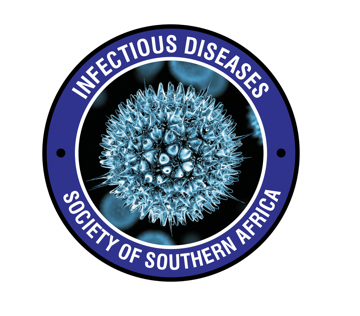Behandel stolsels in Covid-pasiënte vroeg
Twee dokters op Stellenbosch – Drr Jaco Laubscher en Johan Lourens – se benadering met Covid-pasiënte konsentreer op vroeë behandeling met gewone en plaatjiegerigte antistolmiddels, asook ’n spesifieke middel om bestaande stolsels op te los. Die sukses van dié benadering kan nie geïgnoreer word nie, al is dit nog net op 22 pasiënte toegepas. Bring dié benadering nuwe hoop? Waar pas stolling in die COVID-siektebeeld in?
Marí Hudson gesels met die twee dokters en ook met Prof André Coetzee, voormalige hoof van Narkose van die Universiteit van Stellenbosch, en probeer om antwoorde op vrae te vind oor die werking van die virus, spesifiek die rol van stolling in die siekte en die jongste behandelingstrategieë.
Klik hier om na die video van Dr Jaco Laubscher te kyk.
Die aansprake van Dr Jaco Laubscher, dat Covid primer ‘n vaskulêre en stollingsiekte is en nie ‘n longsiekte nie, en dat die siekte se naam moet verander om dié probleem aan te dui, asook sy gebruik van spesifieke stolselo-oplosser bekend as tPA, het onmiddellik reaksie uitgelok:
11 June 2020
Statement on Thrombolysis and Dual Antiplatelet Therapy in COVID-19
As representatives for Haematology at the Universities of Cape Town and Witwatersrand, we take note of recent protocols and YouTube videos circulated on the use of antiplatelet agents and thrombolysis in the treatment of patients with moderate/severe COVID-19.
We think that it is important to provide comment to address concerns raised about safety and efficacy and numerous requests by colleagues to provide our perspective on this.
1. Many of us will agree that coagulation and endothelial dysfunction or endothelialitis are likely to form a key part of the pathophysiology, but we don’t think we can recommend this aggressive treatment unless we have a clinical trial comparing low molecular weight heparin with what is being proposed. Risks of massive bleeding is VERY high if one uses thrombolysis PLUS two antiplatelet agents. We are concerned about a greater than 10% risk of intracranial haemorrhage in particular when using thrombolysis (not adding the additional risk of two antiplatelet agents). We need to know what that risk is in COVID patients before we can recommend or even consider use in all moderate/severe patients. We have not seen information on bleeding in patients treated with these protocols yet.
2. The heparins do have anti-inflammatory effects that may potentially be useful in patients who have severe inflammation, if compared to other anticoagulants;
3. We don’t think one can say that it is a vascular disease rather than a lung disease; we think that thromboembolism is one expression, albeit a very important one, of this disease. There is no doubt that COVID-19 has a variety of expressions, whether a haemophagocytic syndrome type phenotype associated with a cytokine storm, a more neurological phenotype, lung disease and/or gastrointestinal effects, etc. Whether the different effects are mediated by different genotypes, e.g. perforin gene polymorphisms or mutations giving rise to haemophagocytosis and macrophage activation syndromes, or other genetic or environmental predispositions remain to be seen. I would thus say that the theories suggested on pathophysiology need further exploration, as is being pursued in many places around the world and that aggressive therapy with thrombolysis and dual anti-platelet therapy be withheld until safety and efficacy has been proven in a clinical trial.
Nevertheless, we appreciate the opportunity for robust debate and for the time spent by colleagues for interesting presentations. We acknowledge that there may be desperate cases, where, within the framework of ethical patient management, certain patients could be managed with personalised treatments, but although it may be well meant, we advise against using anything in mild/moderate cases without solid evidence.
Vernon Louw (Clinical Haematology, University of Cape Town)
Jessica Opie (Haematology, University of Cape Town and NHLS)
Barry Jacobson (University of Witwatersrand and NHLS)
 Infectious Diseases Society of Southern Africa(IDSSA)
Infectious Diseases Society of Southern Africa(IDSSA)
11 June 2020
Concerns regarding the recommendation of thrombolysis and antiplatelet therapy for the management of COVID-19.
We hereby express our concern regarding the YouTube video (https://m.youtube.com/watch?feature=youtu.be&v=W1eH6DYQ1ro) and associated treatment protocol recommending antiplatelet therapy and thrombolysis for the treatment of COVID-19.
COVID-19 is the disease manifestation of an infection with novel severe acute respiratory coronavirus -2 (SARS-CoV-2). The virus binds to angiotensin converting enzyme -2 (ACE 2) receptors throughout the body. As a result, the infection has multi-organ disease manifestations that include an inflammatory component of the infection. The disease spectrum is also associated with inflammatory damage including an endothelialitis and endothelial dysfunction resulting in coagulation dysfunction that includes both macro and micro thrombosis.
We acknowledge that there is currently no approved treatment for COVID-19 and the results of ongoing clinical trials are eagerly awaited. The use of thrombolysis and antiplatelet therapy is based on a hypothesis that has not been proven in a clinical trial and is not a recommended evidence based treatment for COVID-19 disease. This treatment may be associated with an increased risk of bleeding and contribute to morbidity and mortality of patients.
Anticoagulation prophylaxis and treatment is indicated in those with increased risk of thrombosis or thrombotic disease as per the current evidence-based treatment guidelines.
We do not support the recommendation of thrombolysis and antiplatelet therapy as treatment for COVID-19 and wish to express our concern regarding the recommendation for this unproven treatment. Any new therapy must be used under clinical trial or Monitored Emergency Use of Unregistered and Investigational Interventions (MEURI) conditions.
We urge all health care workers to follow the clinical management guidelines available on the national department of health website. These guidelines review COVID-19 therapeutic interventions as the evidence emerges and is updated regularly. It is dangerous and inappropriate to disseminate non-evidence-based protocols via social media or other non-scientific, peer reviewed channels
On behalf of IDSSA
Queries maybe directed to Dr Halima Dawood: dawoodh@ukzn.ac.za
Lees en luister ook:
Meer as vyf maande gelede het COVID-19 in Wuhan in China uitgebreek, en sedertdien na alle wêrelddele versprei. Weet medici nou meer as vyf maande gelede? Is daar aanvanklike waarnemings wat nou as foutief deurskemer? Is daar groter duidelikheid oor die behandeling? Hoe hanteer dokters in die voorste linie die pasiënte, en kan hulle voorspel watter pasiënte sal herstel en wie nie? Marí Hudson praat met dr. Jantjie Taljaard, ‘n infeksiespesialis by die Universiteit Stellenbosch se mediese skool en die Tygerberg Hospitaal, oor die lesse wat geleer is.



